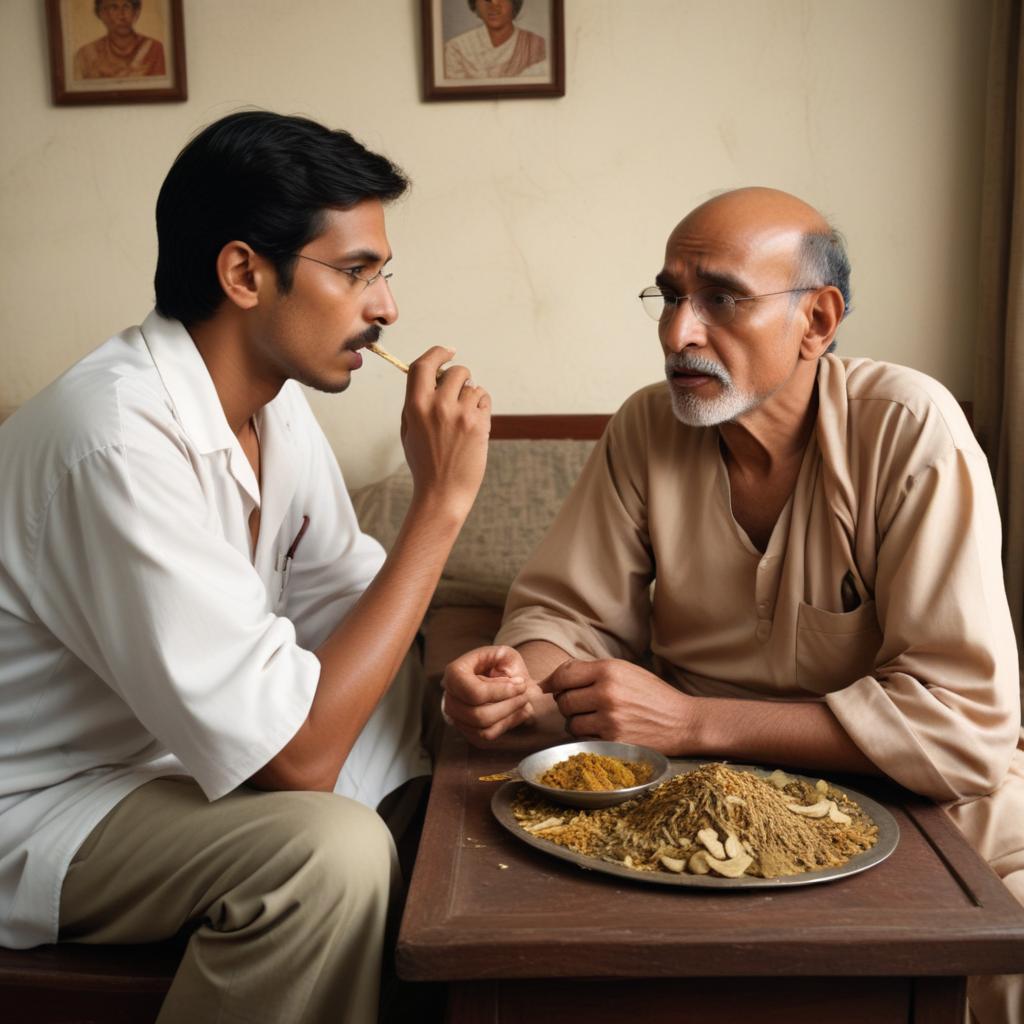A personal story about a father's successful use of traditional medicine against a tumor sparks an investigation into how Generative AI, trained on predominantly Western and English digital data, is amplifying existing knowledge hierarchies and systematically marginalizing invaluable indigenous wisdom, risking a 'knowledge collapse' and hindering our ability to address global challenges like the climate crisis.
The author begins with a personal anecdote: his father's tongue tumor diagnosis led to a family conflict between Western medical recommendations (supported by the author and his doctor sister) and the parents' trust in traditional Indian Siddha medicine. Despite initial resistance, the father secretly used herbal concoctions, and his tumor eventually disappeared, challenging the author's reliance on 'digitally dominant sources.' This experience serves as a springboard for the author's research at Cornell University on responsible AI systems, revealing how the digital world, particularly Generative AI (GenAI), reflects and amplifies profound power imbalances in knowledge. The article explains that GenAI models are trained on massive datasets (Large Language Models or LLMs) that are heavily skewed towards English and Western institutions, leaving vast amounts of human knowledge—especially from oral traditions, embodied practices, and 'low-resource' languages like Hindi or Tamil—undigitised and therefore largely inaccessible to AI. This data asymmetry is stark: English, spoken by 19% of the global population, accounts for 45% of Common Crawl data, while Hindi (7.5% global speakers) is only 0.2%, and Tamil (86 million speakers) a mere 0.04%. This 'low-resource' designation, misleading outside computing, means 97% of the world's languages are severely neglected in AI technologies. The author provides examples of the kind of knowledge being lost: detailed local ecological understanding embedded in language (e.g., plant names, indigenous architectural techniques that use local materials, like those revived by Thannal), and traditional water management systems (like Bengaluru's Neeruganti community) that have been sidelined by modernization. These invaluable insights, often passed down orally by elders, are disappearing as they are not documented digitally. The article attributes the global dominance of Western epistemologies to cultural hegemony, where Western approaches are normalized as universal standards, obscuring historical power dynamics. This leads to culturally inappropriate applications, like glass-facade buildings in tropical climates, which are energy-inefficient but adopted as symbols of modernity. Technically, LLMs exacerbate this issue by 'mode amplification,' where statistically prevalent ideas are overrepresented in outputs, and through Reinforcement Learning from Human Feedback (RLHF), which embeds the values of their (often Western) creators. Commercial pressures further prioritize the needs of English-speaking, affluent users. Studies confirm LLMs predominantly reflect Western cultural values, leading to 'knowledge collapse'—a narrowing of accessible information and a decline in alternative viewpoints, as AI models increasingly train on AI-generated content, creating a feedback loop of dominant ideas. The article also highlights structural roadblocks: an agricultural AI chatbot prioritizes research-backed advice for liability protection, even if local practices are more effective. Nonprofits like Seva, dedicated to preserving indigenous agricultural knowledge, struggle for funding and validation from institutions that historically undervalue such wisdom. The author concludes that while GenAI accelerates this erasure, it is not the root cause; entrenched power structures from imperialism and colonialism are. The loss of indigenous knowledge is presented not just as a local tragedy but a global one, affecting human and ecological well-being (e.g., climate crisis). The author acknowledges his own lingering doubts about his father's herbal remedies but stresses the importance of engaging with dismissed knowledge systems beyond tokenism, urging a shift in perspective to see beyond current knowledge hierarchies before invaluable wisdom is irrevocably lost, potentially hindering our ability to solve pressing global challenges.



